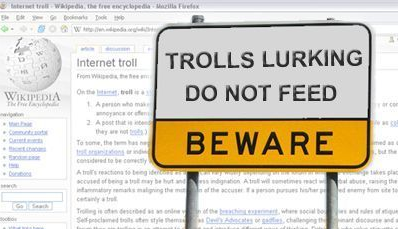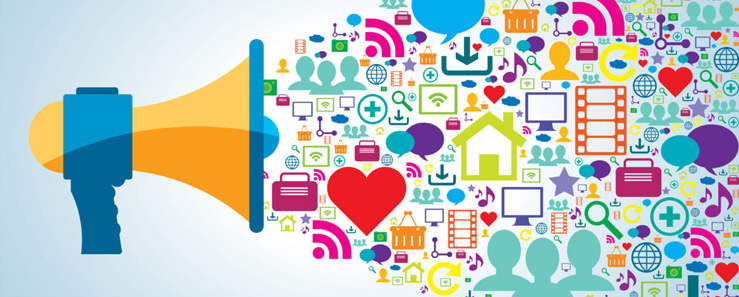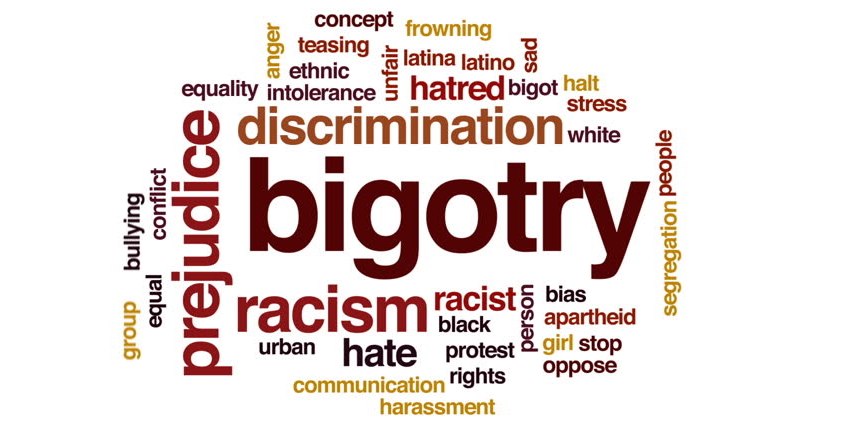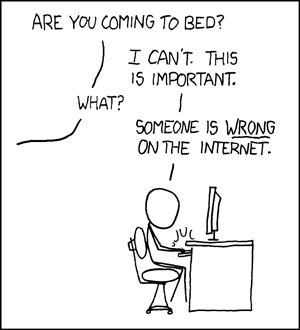
Two phenomena have arisen relatively recently in human history which have, in my opinion, greatly contributed to the development of what is now referred to as “internet trolls“; The attempt at cultivating critical thinking within the education system, and hyperconnectivity.

The Ultimate Megaphone
Un unforeseen consequence of Moore’s Law has been that technological advances have brought about fundamental behavioural changes faster than society is able to adapt. Suddenly everyone is hyperconnected constantly, yet we have not yet had time to integrate this into our social protocols, or emerge compensatory strategies to ensure the continuity of our social structures and balance with other important aspects of our intrapersonal and interpersonal lives.
Some may argue that such disruptive technology, and the power to shatter existing social structures, has done a lot of good; and in a limited scope I feel such an outlook is very valid. However, consider the worrying prevalence of porn addiction, internet addiction, and cyber bullying, and we see that, as a species, we have not adapted to this new ‘way of being’ in a healthy manner.
Consider the difference between a verbal conversation between individuals in private and a recorded message on the public internet which will virtually never die, and which can exist completely independently of our identity if we choose to be anonymous. Possibly this juxtapositioning begins to illuminate potential consequences, and thus responsibilities which may or may not be taken into account. When we speak with another person face-to-face, we have been socialised to treat them a certain way, depending on who they are, and to expect consequences of our actions. We could have strongly negative consequences if we insult or enrage the other person. Such personal consequences disappear when you are sitting on the other end of the world behind a computer screen.
There is a branch of psychological theory referred to as “Constructivism“, in which it is argued that we continuously “recreate” our identity every time we interact. We are thus a slightly different version of ourselves when we are called into the principal’s office compared to the version when playing cards with a cousin. So what version of ourselves do we become when sitting alone in front of a computer screen? I think it is an interesting question.
Jaques Lacan similarly proposed that through social interactions, we are “interpolated” into societal roles according to ideological frameworks in which we exist. If we think about this in terms of online interactions, what role are do we assume when interacting online. Perhaps the lack of consequences and pervasive hostility results in us unconsciously constructing a version of ourselves which express behaviours which simultaneously allow for unfiltered expression at the same time defending against the attacks of others.

Bigots Anonymous
Since the 1990’s, there has been great emphasis on developing “Critical Thinking” skills in many educational institutions around the world.
“The aim of Critical Thinking is to promote independent thinking, personal autonomy and reasoned judgment in thought and action.”
https://sta.uwi.edu/ct/ctande.asp
This is a great initiative and the world certainly needs more people with well developed reasoning and judgement. However, coupled with the constantly decreasing standards of education, the result has been to imbue the younger generations with the idea that they expect to always have an opinion about everything, without the rigorous requirements of academia of former years. This generation does not feel any obligation to base opinions on facts, research, or even logical arguments. This mental laziness is widespread and very common. Of course one cannot generalise and there are always a minority of brilliant minds which rise above the obstacles of the education institutions.
I believe that another reason for the emergence of this type of behaviour is the focus of institutional education has, like almost all other aspects of society, become driven by commercial and political interests.
In the past, education took the form of apprenticeships, where the apprentice would learn from the master over many years to hone a particular skill until they too had master over it. Then during the Renaissance period education became more holistic, introducing academic pursuits, to open the mind, and to explore thoughts and ideas on a broad range of subjects.
Today, such noble idealism is a thing of the past, and the curriculum has become self-serving in the sense that students are taught how to pass exams. This is in the context of an extraordinarily artificial system of Key Performance Indicators, metrics, ogive curves, standardisations, and restrictive regulations.

Power to the Idiots
It is thus my opinion that the combination of limitless self-entitlement to unfounded opinions and the anonymous, depersonalised, consequence-less internet, leads to a type of “self construction” in which bigotry and cyberbullying thrive.
It is perhaps an extremely unpopular opinion to have, but it amazes me the extent to which individuals feel the absolute right to have an opinion about things that they have no knowledge of. The authority of experts is no longer valued as before, and what seems to now give credibility is the number of “followers” you have, rather than how knowledgeable you are.
I hope that a fundamental shift in education on a global scale is around the corner, as I do not see the current system being very sustainable.

Pingback: Thoughts on Evolution | Ralfe Poisson